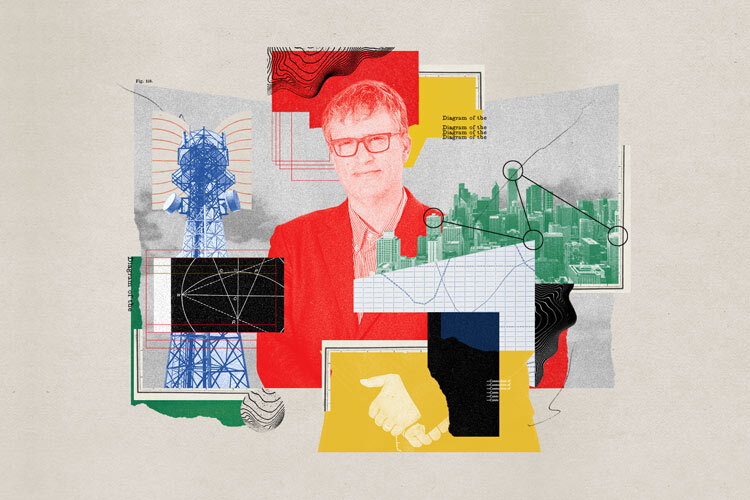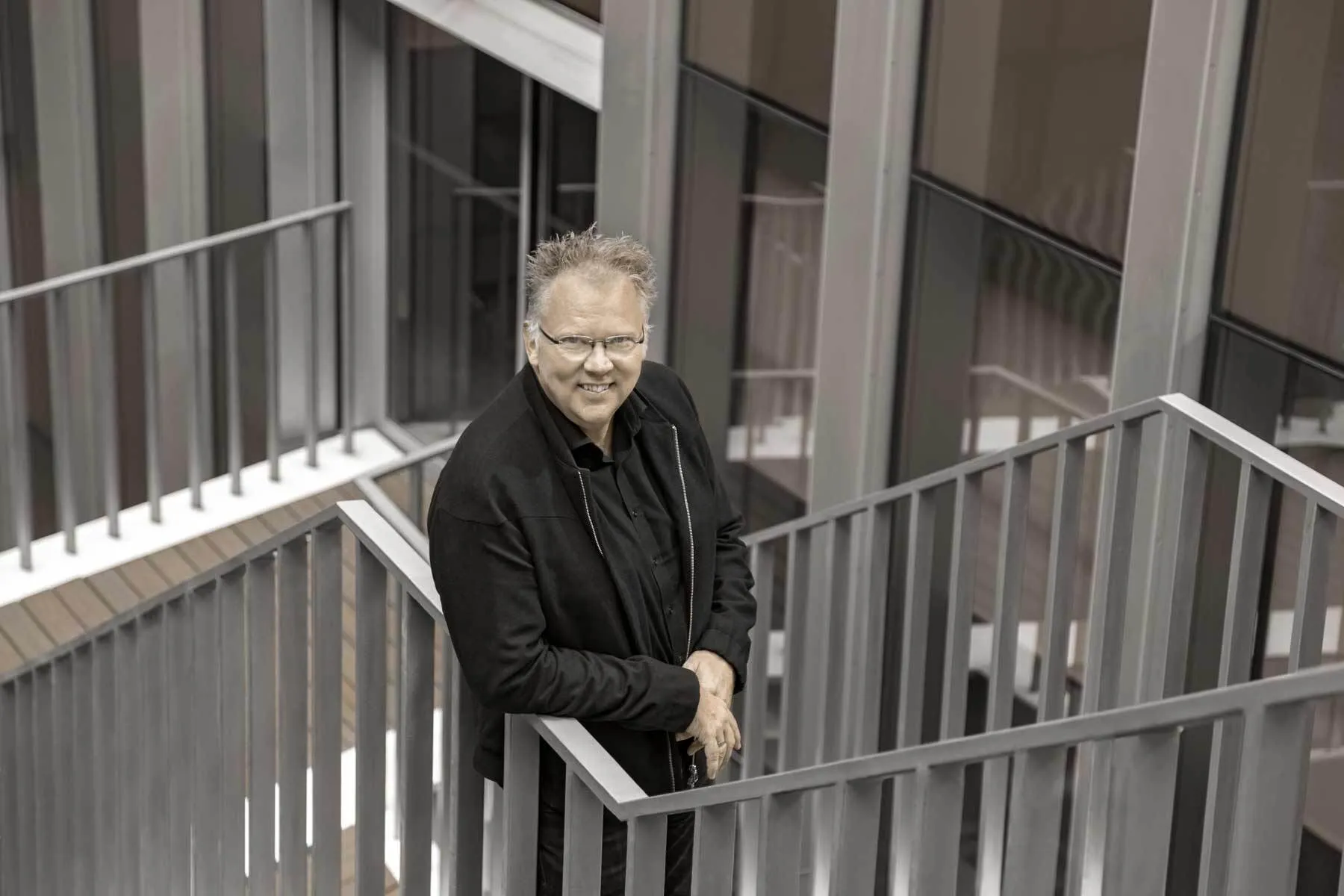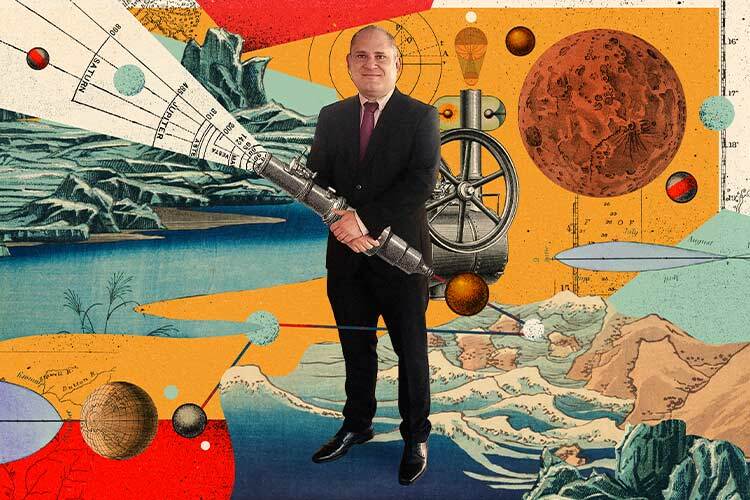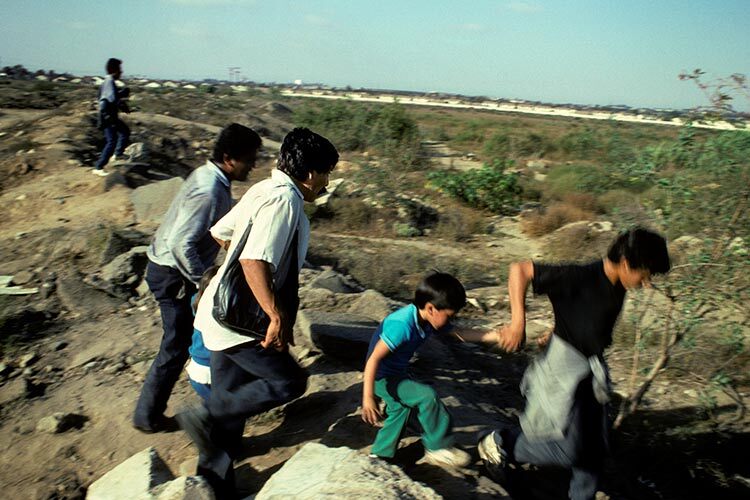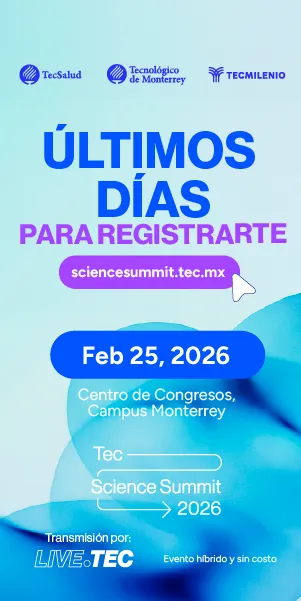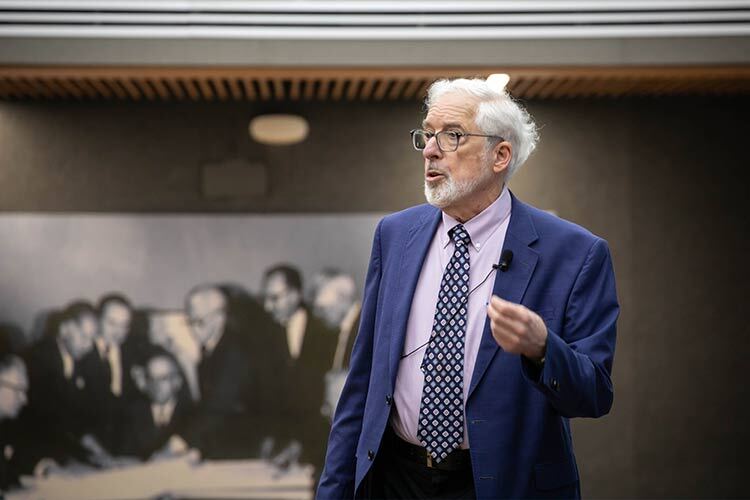As a boy, Francisco Falcone liked playing with his father’s tools, which included a multimeter (a portable instrument that measures electric current). This early interest inspired him to pursue Telecommunications Engineering at the Public University of Navarra, where he is currently a professor and head of the Institute for Smart Cities.
Falcone, originally from Pamplona, Spain, aspires to build connected smart cities that improve people’s lives using sensors, cameras, Artificial Intelligence, and even the automation of services such as water and electricity, to efficiently cover the demand for these resources.
Falcone believes that science transcends national boundaries and pursues the general benefit worldwide. With this in mind, he has served as a visiting professor at Tec de Monterrey since 2022 as part of the Faculty of Excellence initiative, which brings together international professors to teach, conduct research, and develop projects and initiatives that benefit both the region and the world.
What brought you to work in Mexico and specifically at Tec de Monterrey?
We had been working together for nearly ten years before being offered a position in the Faculty of Excellence program with dual affiliation.
This supplied us with a variety of resources, including a handful of postdocs to help us in Mexico. We work with members of the School of Architecture, Art, and Design (EAAD) and begin projects with the telecommunications group.
We now collaborate on projects with Professor Rob Roggema, Carlos Coello, Marc Madou, and Frank Lodge. However, we are in conversations with other Faculty of Excellence members to begin active cooperation outside of this group.
Could you provide an example of the initiatives you collaborate on?
We collaborate with Professor Roggema on regenerative urbanism initiatives, providing connection, telemetry, and telecontrol technologies.
This helps him monitor trees, design aquaponics systems for circular economy environments, and promote sustainable community initiatives like urban gardens to support the production of locally produced and traditional foods in Monterrey and Nuevo León.
Among other initiatives, we are working on emergency connection solutions that use drones to set up a temporary telecommunications network. We are also strengthening connectivity between electric cars and upgrading 5G networks in industrial settings.
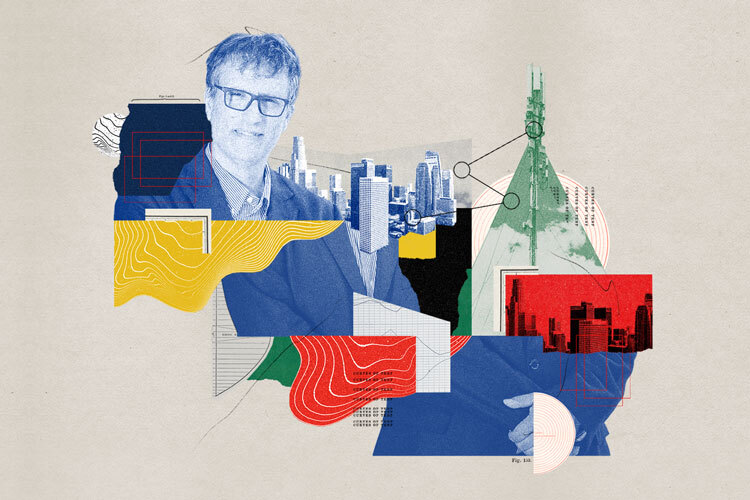
More About his Work at Tec
What benefits do you gain from conducting research at Tecnológico de Monterrey?
Collaborating with other colleagues is quite beneficial; one learns a lot because there are many distinct and frequently complementing ideas.
Moving from my typical surroundings, a small institution in Spain, to an internationally known university in Mexico, is unquestionably a cultural shift and a beneficial learning experience.
Tec has always greeted me kindly and I am grateful to my institution in Pamplona for providing me with this option for dual affiliation.
What is it like working with other researchers at Tec?
It’s a nice connection. First of all, there is a nice attitude, which may appear to be a little aspect, but it is not, because dealing with research concerns may be stressful at times.
I enjoy that there is always an open and optimistic attitude, and things are being recognized because projects are moving forward, even if it has been difficult since academics are always extremely busy and have a lot on their plates.
We must be grateful that individuals have the patience and time to sit down with us and ask, “So, what do you want to tell me? I’m pretty busy, but let me know what we can do.”
Science Without Borders
Do you believe science has a nationality?
Science has no borders; it is for the greater advantage of everybody, and I believe that is the core value of researchers.
A researcher typically travels, works at various universities throughout the world, collaborates with colleagues from all over, publishes in international publications, and attends global conferences. I don’t believe it should have a nationality, but it’s unavoidable.
Everything is for the greater good, but, man, if you are Mexican and have someone like Alejandro Madrigal, you claim him as your own, correct? If we can claim footballers for our country, why can’t we claim brilliant scientists?
Why did you become a researcher?
I’m not sure if I expected to pursue this road. What I am certain of is that I am thankful to have had the chance to pursue my career, which I feel is the greatest one available.
I’ve always been fascinated by how things function, and I believe that is very much in an engineer’s mindset—the capacity to touch and understand—so as I progressed, it attracted me.
Science in Mexico, according to Francisco Falcone
Is there a Mexican researcher who particularly impresses you?
Alejandro Madrigal. He’s an amazing researcher; I saw a presentation he delivered that left me speechless. What a fascinating life story, outstanding resume, and person he is.
Of course, there are fantastic people at Tec, such as Carlos Coello, another Mexican with an outstanding resume who has done amazing fundamental work.
These are only a few instances of many excellent individuals, and I believe that having such people in the country is a true luxury.
Do you plan to live in Mexico for some time at some point?
That is not in the short-term planning. I have an elderly mother to care for. Also, the children are of school age, and they have friends, so I’m not sure.
I’ll tell you something: if we ever do anything like that, if we decide to do it as a family, I believe I’d still go to Tec since, in addition to having a great experience, this university takes excellent care of its people.
Before coming to or knowing Mexico, did you have an idea of what this country was like, and how has your perception changed?
To be honest, I had never been to Mexico, but I held it in esteem since I had some contacts with researchers there.
Even before I arrived, I was intrigued by the cuisine. I come twice a year for approximately a month, and when I travel to Mexico, I work hard, but I always make time to rest and relax.
It is an immensely diversified country with cultural, culinary, tourism, and commercial potential. It is really attractive and recommendable.
When you’re in Mexico, what do you miss the most about your country?
More than the country, I miss my family. That is what I see as your nation, correct? It is your house and family.
My family consists of my wife and three children. The oldest is 21, the middle is 17, and the youngest is 15, he also enjoys soccer and already has Tigres and Rayados shirts in his collection.
As for the rest, I don’t have time to miss anything because we’re too busy at work.
